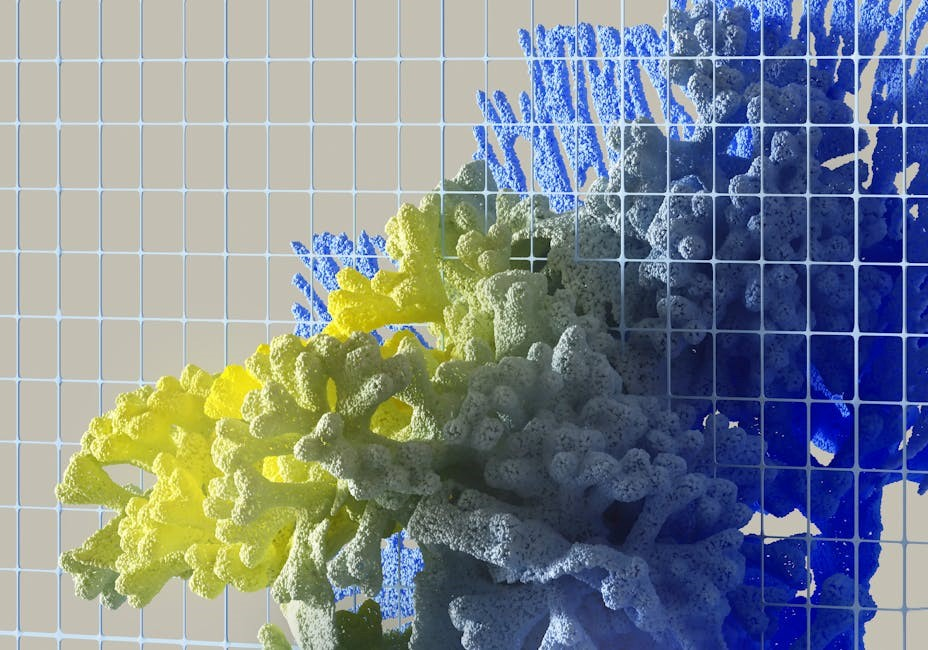
vaughn bioethics 5th edition pdf
Bioethics explores ethical issues in medicine, technology, and environment, guiding moral decision-making. Vaughn’s 5th Edition provides a comprehensive overview, addressing key concepts, theories, and real-world applications.
1.1 Definition and Scope of Bioethics
Bioethics is the study of ethical issues arising from biological and medical advancements. It addresses moral questions in healthcare, genetics, and environmental practices. The scope of bioethics encompasses patient rights, informed consent, and ethical dilemmas in research. Vaughn’s 5th Edition provides a comprehensive exploration of these concepts, offering insights into the moral principles guiding decision-making in modern medicine and technology. This field is essential for navigating complex ethical challenges in a rapidly evolving world.
1.2 Historical Development of Bioethics
Bioethics emerged as a distinct field in the mid-20th century, driven by advancements in medicine and technology. The Nuremberg Code (1947) and later, Rachel Carson’s Silent Spring (1962), highlighted ethical concerns in research and environment. The 1970s saw the establishment of bioethics as an academic discipline, with institutions like The Hastings Center leading the way. Vaughn’s 5th Edition traces this evolution, emphasizing how historical events shaped modern bioethical principles and practices, providing a foundation for addressing contemporary ethical dilemmas.
1.3 Importance of Bioethics in Modern Society
Bioethics plays a crucial role in addressing ethical dilemmas in healthcare, technology, and environmental sustainability. It ensures respect for patient autonomy, justice, and human rights, guiding policies and practices. Vaughn’s 5th Edition underscores its relevance in resolving conflicts between scientific progress and moral values, fostering informed decision-making. By promoting ethical awareness, bioethics empowers individuals and societies to navigate complex challenges, ensuring a balanced approach to innovation and human well-being in an increasingly interconnected world.
Overview of Vaughn’s Bioethics 5th Edition
Vaughn’s Bioethics 5th Edition offers a comprehensive exploration of ethical issues in medicine and technology. It provides updated insights, case studies, and practical applications for modern bioethical challenges.
2.1 Key Features of the 5th Edition
The 5th Edition of Vaughn’s Bioethics offers updated case studies, expanded discussions on emerging technologies, and enhanced pedagogical features. It includes new chapters on AI ethics, genetic engineering, and global health disparities, providing a comprehensive analysis of modern bioethical dilemmas. The text incorporates real-world examples, fostering critical thinking and ethical reasoning. With a focus on interdisciplinary approaches, this edition equips readers with the tools to navigate complex moral issues in healthcare, environment, and technology.
2.2 Structure and Organization of the Book
Vaughn’s Bioethics 5th Edition is structured to provide a logical progression from foundational concepts to complex issues. The book is divided into chapters that explore key principles, theories, and real-world applications. Each section builds on the previous one, ensuring a comprehensive understanding. Case studies, discussion questions, and additional resources are integrated throughout to enhance learning. The organization allows readers to grasp both theoretical frameworks and practical implications, making it accessible for students and professionals alike.
2.3 Target Audience and Purpose
Vaughn’s Bioethics 5th Edition is designed for students, healthcare professionals, and educators seeking a comprehensive understanding of bioethical principles. Its purpose is to bridge theory and practice, fostering ethical decision-making in diverse contexts. The book caters to both newcomers and experienced practitioners, providing accessible language and real-world examples. By addressing contemporary issues, it aims to inspire critical thinking and moral engagement in bioethics, making it an invaluable resource for academic and professional settings.
Key Concepts and Theories in Bioethics

Bioethics encompasses core principles like autonomy, beneficence, and justice, alongside ethical theories such as utilitarianism and deontology, providing frameworks for analyzing complex moral dilemmas in healthcare.
3.1 Moral Principles in Bioethics
Bioethics is grounded in key moral principles: autonomy, beneficence, non-maleficence, and justice. These principles guide ethical decision-making in healthcare, ensuring respect for patient rights and promoting well-being. Vaughn’s 5th Edition elaborates on these principles, providing clear frameworks for addressing dilemmas in medical practice and research. By understanding these foundational concepts, professionals can navigate complex ethical challenges with clarity and integrity, fostering trust and ethical care in diverse healthcare settings.

3.2 Ethical Theories and Their Applications
Ethical theories such as utilitarianism, deontology, and virtue ethics provide frameworks for analyzing bioethical dilemmas. Utilitarianism emphasizes outcomes, guiding decisions that maximize overall well-being. Deontology focuses on duties and rules, like respecting patient autonomy. Virtue ethics highlights character traits, encouraging compassion and integrity in healthcare. These theories, explored in Vaughn’s 5th Edition, offer practical tools for navigating complex issues, ensuring ethical decisions align with moral values and promote justice in healthcare and beyond.
3.3 Case Studies and Real-World Examples
Vaughn’s 5th Edition enriches understanding through real-world case studies, illustrating ethical dilemmas in healthcare and technology. These examples, such as genetic engineering or AI in medicine, demonstrate how ethical theories apply to practical scenarios. By exploring these cases, readers gain insight into resolving moral conflicts, fostering critical thinking and ethical decision-making in complex situations. This approach bridges theory with practice, making bioethics accessible and relevant to contemporary challenges.
Medical Ethics and Healthcare
Medical ethics and healthcare explore patient autonomy, informed consent, and end-of-life care, addressing technology’s role in ethical decision-making and privacy, essential for modern healthcare.
4.1 Patient Autonomy and Informed Consent
Patient autonomy emphasizes the right to make informed decisions about one’s healthcare. Informed consent ensures patients receive clear, accurate information about treatments, risks, and benefits, enabling voluntary choices. This principle respects individuals’ dignity and self-determination, fostering trust between patients and healthcare providers. Challenges arise in balancing autonomy with beneficence, particularly when patients’ decisions may not align with medical advice. Vaughn’s 5th Edition explores these dynamics, offering ethical frameworks to navigate complex clinical scenarios while upholding patient rights.
4.2 End-of-Life Care and Euthanasia
End-of-life care and euthanasia raise profound ethical questions about dignity, suffering, and the right to die. Patient autonomy often conflicts with medical and moral obligations. Vaughn’s 5th Edition examines the ethical theories and legal frameworks surrounding euthanasia, highlighting debates on voluntary versus involuntary practices. The text explores palliative care’s role in alleviating pain and the moral dilemmas healthcare providers face in balancing compassion with legal and ethical standards. These issues remain central to bioethics, challenging societal norms and values.
4.3 Ethical Issues in Medical Research
Medical research often raises ethical concerns, such as informed consent, confidentiality, and the balance between potential benefits and risks. Vaughn’s 5th Edition delves into these issues, emphasizing the protection of vulnerable populations and the ethical use of data. The text also explores the tension between scientific progress and human dignity, providing frameworks for resolving moral dilemmas in research settings. These discussions are crucial for ensuring ethical standards in advancing medical knowledge and technologies.

Environmental and Public Health Bioethics
Environmental and public health bioethics examines ethical issues at the intersection of health and ecology, addressing sustainability and equity. Vaughn’s 5th Edition explores these critical intersections.
5.1 Ethical Considerations in Environmental Health
Environmental health ethics addresses moral dilemmas arising from human interactions with ecosystems. It emphasizes justice, sustainability, and the protection of vulnerable populations from environmental hazards. Vaughn’s 5th Edition highlights the ethical responsibilities to balance human needs with ecological preservation, ensuring equitable access to clean resources. The text explores case studies on pollution, climate change, and resource depletion, advocating for policies that prioritize both human and planetary well-being. Bioethics plays a crucial role in shaping sustainable solutions.
5.2 Global Health Disparities and Justice

Global health disparities refer to unequal access to healthcare and health outcomes across different populations. Vaughn’s 5th Edition emphasizes the ethical imperative to address these inequities, ensuring justice and fairness in healthcare distribution. It highlights how socioeconomic factors, geography, and systemic biases contribute to health disparities. The text advocates for policies and interventions that promote equitable access to resources, particularly for marginalized communities. Addressing these disparities is crucial for achieving global health justice and upholding human dignity.
5.3 Bioethics and Emerging Technologies
Bioethics and emerging technologies intersect in complex ways, raising ethical questions about innovation and its impact on society. Vaughn’s 5th Edition explores issues like AI, gene editing, and digital health, emphasizing the need for ethical frameworks to guide technological advancements. These technologies promise significant benefits but also pose risks, such as privacy concerns, equity issues, and unintended consequences. Bioethics plays a crucial role in ensuring that technological progress aligns with human values and promotes societal well-being.

Legal and Policy Aspects of Bioethics
Vaughn’s 5th Edition explores the legal frameworks and policies shaping bioethics, emphasizing AI regulation and data privacy as critical areas for ethical governance.
6.1 Bioethics and the Law

Bioethics and the law intersect in regulating medical practices, patient rights, and emerging technologies. Vaughn’s 5th Edition examines legal frameworks governing ethical dilemmas, ensuring compliance with moral standards while addressing societal values and technological advancements.
6.2 Policy Making in Bioethics
Policy making in bioethics involves creating guidelines that balance ethical, legal, and societal needs. Vaughn’s 5th Edition discusses how policies are developed to address issues like genetic engineering and AI, ensuring ethical standards are upheld in advancing technologies and medical practices.
6.3 International Perspectives on Bioethics
International perspectives on bioethics highlight diverse cultural and legal approaches to ethical issues. Vaughn’s 5th Edition explores global viewpoints, emphasizing how different nations address topics like human rights, medical research, and environmental ethics, fostering a collaborative approach to bioethical challenges worldwide.

The Role of Religion and Culture in Bioethics
Religion and culture shape bioethical decisions by influencing moral frameworks and values. Vaughn’s 5th Edition examines how diverse beliefs and traditions impact ethical practices globally.
7.1 Religious Perspectives on Bioethical Issues
Religious perspectives significantly influence bioethical decision-making, offering moral guidance on issues like life sanctity, autonomy, and justice. Christianity, Islam, and Judaism emphasize compassion and human dignity, shaping debates on abortion, euthanasia, and organ donation. Vaughn’s 5th Edition explores how religious teachings align with or conflict with secular bioethical frameworks, highlighting the importance of understanding diverse faith traditions in global healthcare and policy-making.
7.2 Cultural Diversity and Bioethics
Cultural diversity profoundly shapes bioethical perspectives, as different societies hold varying values and norms. Vaughn’s 5th Edition highlights how cultural differences influence attitudes toward life, death, and medical practices. For instance, end-of-life care and organ donation are viewed differently across cultures. Understanding these variations is crucial for ethical decision-making in global healthcare, ensuring respect for diverse traditions while addressing universal bioethical challenges.
7.3 Interfaith Dialogue in Bioethics
Interfaith dialogue plays a vital role in bioethics, fostering collaboration among diverse religious traditions. Vaughn’s 5th Edition emphasizes how religious teachings inform ethical decisions, such as end-of-life care and genetic research. By engaging in open discussions, different faith communities can find common ground, promoting mutual respect and ethical solutions. This dialogue enriches bioethical discourse, ensuring that diverse perspectives are considered in addressing complex moral dilemmas.

The Future of Bioethics
Bioethics’ future lies in addressing emerging technologies and global challenges. Vaughn’s 5th Edition highlights AI’s role in ethical decision-making, ensuring humanity remains central to technological advancements.
8.1 Emerging Trends and Challenges
Bioethics faces emerging trends like AI-driven healthcare and genetic engineering, raising ethical dilemmas. Challenges include data privacy, algorithmic bias, and equitable access to advanced technologies. Vaughn’s 5th Edition explores these issues, emphasizing the need for ethical frameworks to guide innovation and policy. As technology evolves, bioethicists must address societal impacts, ensuring that advancements benefit all humanity while respecting moral principles.
8.2 The Impact of Artificial Intelligence

Artificial Intelligence (AI) is transforming bioethics, offering advancements in healthcare diagnostics and personalized medicine. However, it raises ethical concerns like algorithmic bias, data privacy, and accountability. Vaughn’s 5th Edition highlights the need for ethical frameworks to guide AI development, ensuring transparency and fairness. As AI becomes integral to decision-making, bioethicists must address these challenges to balance innovation with moral responsibility, fostering trust in AI-driven solutions.
8.3 Bioethics Education and Awareness
Bioethics education is crucial for fostering ethical awareness and decision-making. Vaughn’s 5th Edition emphasizes the importance of accessible resources and interdisciplinary learning. Microsoft’s AI-driven tools, like Copilot, support educational initiatives by enhancing accessibility to bioethical knowledge. By leveraging such technologies, educators can create engaging platforms for discussing ethical dilemmas, ensuring a well-informed society capable of addressing complex bioethical challenges with empathy and responsibility.
Conclusion
Vaughn’s Bioethics 5th Edition underscores the evolving nature of ethical decision-making, supported by advancements like Microsoft’s AI, which aid in navigating complex bioethical landscapes responsibly.
9.1 Summary of Key Points
Vaughn’s Bioethics 5th Edition provides a comprehensive exploration of ethical principles, theories, and applications in bioethics. It addresses moral dilemmas in healthcare, research, and emerging technologies, emphasizing patient autonomy and justice. The text integrates real-world case studies, fostering critical thinking and ethical decision-making. By examining diverse perspectives, including religious and cultural influences, the book offers a holistic understanding of bioethics. Its structured approach makes it a valuable resource for students, professionals, and policymakers navigating complex ethical landscapes in a rapidly evolving world.
9.2 Final Thoughts on the Importance of Bioethics
Bioethics is essential for addressing ethical dilemmas in healthcare, technology, and environmental sustainability. Vaughn’s 5th Edition underscores its role in fostering moral reasoning and responsible innovation. By integrating diverse perspectives, bioethics promotes equity and respect for human dignity. As society faces new challenges, the discipline remains vital for guiding ethical decision-making and ensuring that advancements benefit humanity. Its principles are foundational for creating a just and compassionate future, emphasizing the need for ongoing dialogue and education.
9.3 Call to Action for Ethical Engagement
Engaging ethically is crucial for fostering a morally conscious society. Vaughn’s 5th Edition encourages individuals to participate in bioethical discussions, advocating for policies that prioritize human well-being and environmental sustainability. By staying informed and active, everyone can contribute to ethical advancements in technology and healthcare. Education and dialogue are key to addressing complex issues, ensuring that ethical principles guide progress. Collective effort is essential for creating a future where ethical considerations are integral to all decision-making processes.